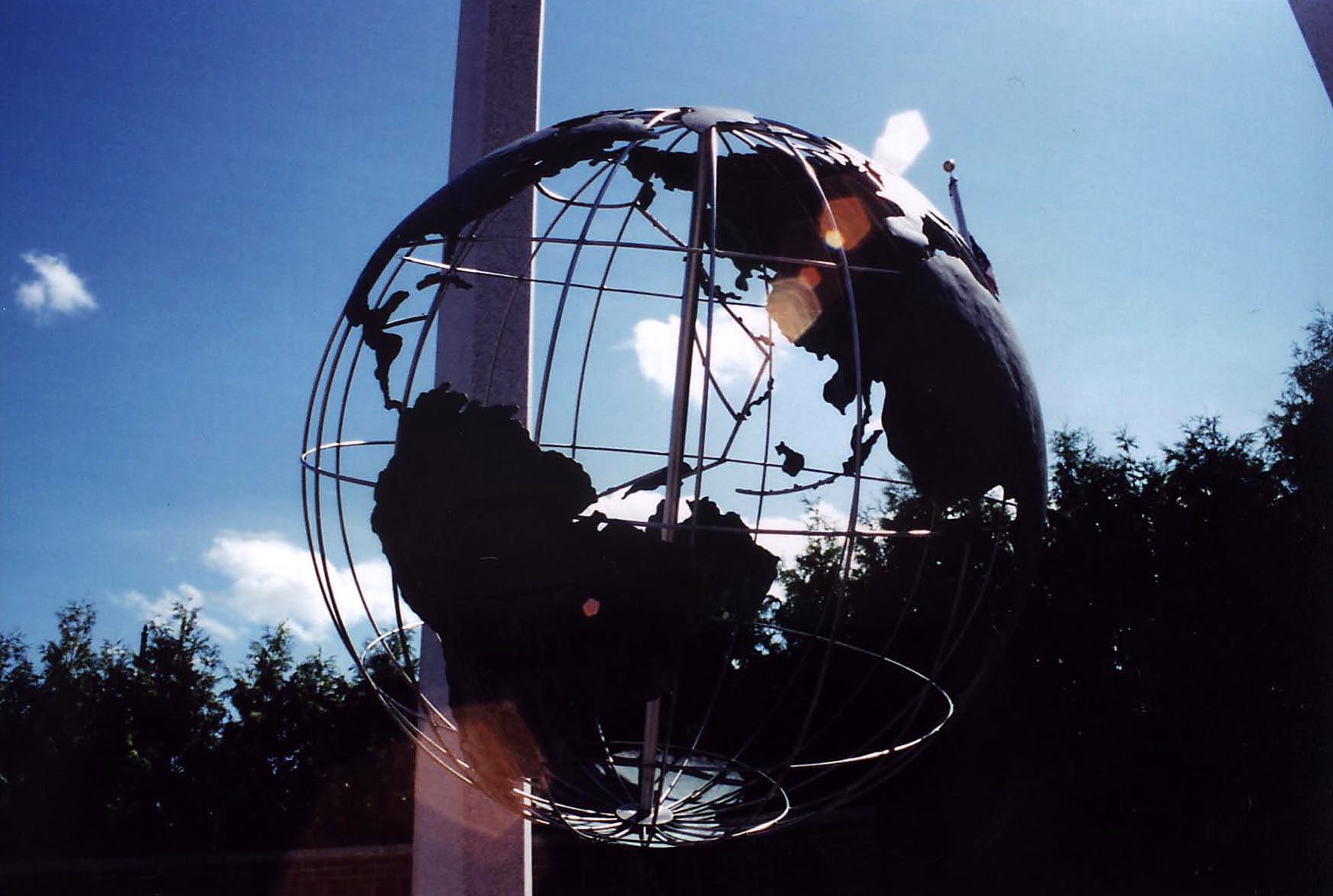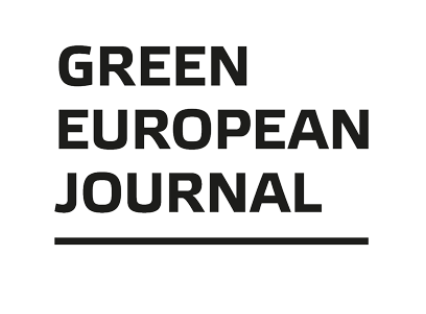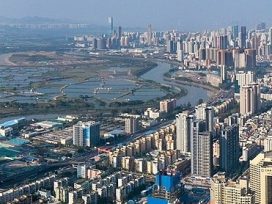Ethnonationalism in a multipolar world
Trump’s imperial ambitions are forcing the EU to rethink its global position. And European far-right parties, swollen on fears of diminishing world power, are paradoxically flogging the ethnic nation as a place of shelter. But finding unity in scapegoating migrants blatantly fails to recognize the need for a common purpose in times of worldwide uncertainty.
The last three hundred years represent a unique historical eccentricity. For the first and probably the last time in human history, global transformations in the widest sense – from societal developments to climate change – have largely been determined by events taking place in a very narrow and mostly culturally homogenous part of the world: the Asian peninsula called Europe and, for a shorter time, its American offspring. Today, we are witnessing the closure of this aberration. Why is the far right on the rise across Europe? Perhaps unexpectedly, part of the answer lies in the rise of China, India, and the Global South. Ethnonationalism may indeed become the common organising principle of the multipolar world order.
The usual suspects
A decade ago, ‘populism’ became a buzzword in Western media. So-called populist parties were booming. In 2014, the Italian, anti-establishment Five Star Movement, founded by comedian Beppe Grillo, went from nowhere to government. In Spain, left-wing party Podemos swapped activist gatherings in social centres for a strong presence in parliament and soon after in government. In 2015, far-left Syriza went from marginality to winning the Greek election and faced a stand-off with the European Union. And in 2016, Brexit populists won the referendum that eventually pulled Britain out of the EU, in what arguably represented both the climax of this first wave of populism and one of the greatest recent acts of national self-harm.
Populism was the catch-all term serving to identify any political group distancing itself from the consensual centre-left and centre-right, which had come to dominate the narrow political spectrum of the 1990s and early 2000s. While today’s far right has its distinctions, the rejection of the ‘centre’ remains a kernel of its discourse. Many of the arguments regularly presented to justify its current success resonate with or are identical to those first employed to explain populism’s rise in the 2010s. However, these arguments are in dire need of an update.
One of the most widespread justifications for so-called populist phenomena traditionally centred on the economy. Following the 2008 financial crisis, Europe entered several years of economic chaos, with debt crises in Greece, Spain, and Ireland, and self-defeating austerity measures everywhere. Budgets were cut, economies went into recession, and unemployment skyrocketed. By the mid-2010s, the GDP of many European countries was smaller than in 2007. No wonder voters were turning to the extremes, many argued.
However, the economic justification for far-right leanings has much less explanatory power today. While inflation post-Covid has certainly reduced purchasing power, Europe is currently experiencing record employment: from Germany to Italy, never have so few European citizens been out of work. The European economy isn’t rushing ahead, but neither is it painfully contracting. And, at least until 2024, there was little austerity; on the contrary, European governments responded to Covid-19 and the energy shock caused by Russia’s escalated invasion of Ukraine with significant public investment.
A twist in this traditional justification points to a reaction against Europe’s climate policy. Unlike the US, Europe has taken the climate transition seriously, imposing a price on carbon, placing more requirements on farmers, encouraging fast-paced transition to renewables, and taking measures such as the introduction of more sustainable yet expensive heating systems in homes. There may be some truth to the backlash here: farmers’ protests played a key role in propelling far-right leader Geert Wilders to first place in the Dutch parliament; and Germany’s far-right AfD openly attacks the energy transition. At the same time, however, Spain’s transition to renewable energy, significantly reducing energy costs by moving from gas to wind and solar production, is reaping tangible benefits for its citizens. Even Italians, despite voting for a right-wing government, have gone on a home-improvement spree thanks to 200 billion euros of state-sponsored subsidies for energy efficiency.
Many analysts turn to the issue of migration instead. Voters, they argue, are reacting to the continuous influx of migrants into Europe, to increased competition for public goods such as healthcare, transport, and housing, to the loss of a homogeneous national culture. Virtually all far-right parties make a reduction in migrant arrivals one of their key talking points. And yet, this is an equally insufficient explanation.
Firstly, the analysis should be turned around: the news is that former colonial powers with deeply entrenched racist views managed, in the span of a few decades, to construct some of the most open, multicultural, and multiracial societies on Earth, with relatively little backlash. Secondly, the locations where migrants represent a truly significant part of the population – cosmopolitan cities like London, Paris, and Milan, where up to 40 per cent of the population is foreign born – are those where the far right scores the least. Thirdly, with unemployment near record lows, the narrative of ‘migrants stealing jobs’ is nowhere to be heard. On the contrary, faced with demographic decline, even right-wing governments are listening to industry demands for more work visas (see Giorgia Meloni).
Economy, climate, migration: each of these three explanations has some truth to it. And yet, none of them goes to the heart of the matter. Understanding the deeper roots of this European far-right resurgence, and how it differs from older forms of populism, requires us to change our language.

Image by Brad MacDonald, via Flickr.
Provincialized Europe
It is only in hindsight that the real significance of a historical epoch comes to light. We have come to interpret 1989 as the inauguration of an unparalleled hegemony of the US. But Japanese philosopher Kojin Karatani sheds a different light on the period. ‘The situation that has unfolded since 1990,’ he writes in his book The Structure of World History, ‘has not been the establishment of a US ‘Empire’, but rather the emergence of multiple Empires.’ The period of Western-led, neoliberal globalization has enabled the emergence of the rest of the world as an economic and hence political, historical, and ultimately civilizational actor. The backlash against globalization that emerged as a so-called populist phenomenon in the 2010s and then spread to capture the mainstream in the 2020s is the realization of the West’s own goal.
The impact of colonialism on the colonized has been the object of academically rich, politically powerful, and morally significant research. If ever there was an interdisciplinary field, this is it, addressing economic and political effects as much as questions of trauma, identity, and psychology. And yet, the cognitive and political effects on the Western mind of how the West’s domination of the world has waned are understudied. As celebrated philosopher and analyst of European fascism Hannah Arendt pointed out, Europe’s imperial projection served to reconcile inequalities at home. Put simply, impoverished French workers and decadent industrialists had one thing in common: they were French and not from the colonies. They considered themselves superior to the peoples their country ruled over. Even in more recent times, well after the termination of colonialism, an insurmountable psychological gap separated the ‘First’ and ‘Third’ Worlds. A European, however poor, had access to opportunities, technologies, and freedoms that few other parts of the world could aspire to. The sense of privilege provided a powerful tool for social cohesion. The material reality of that privilege provided governments with enough wealth to co-opt the population with rising welfare expenditure. This two-pronged external safety valve to pacify internal tensions is now gone forever.
Europe is increasingly marginalized and hit by relative decline compared with the rest of the world. Whether you consider the massive investments required to accompany digital and green transitions, or the need to define a humane and effective management of migration flows, or again the search for a new security paradigm as war returns to the European continent, there is not one single actor in Europe that can steer events and not be steered by them. It is not that today’s European economy, climate transition, or migration flows are problematic in themselves. It is, more subtly, the inability of provincialized, small European states to govern any of these phenomena that translates into a sense of powerlessness, disorientation, and fear.
Amid a climate emergency and a new era of global conflict, the need for Europe to politically unite is self-evident. Small and relatively powerless European nationstates are uniquely misplaced to steer an independent course, to give their citizens a sense of security and stability in this age of planetary challenges and emergent superpowers. Europeans are discovering for the first time what it means to be the objects and not the subjects of history.
In his 1948 essay Black Orpheus, which served as preface to a collection of Black poetry composed by Léopold Senghor, Jean-Paul Sartre famously discussed the ‘objectifying gaze’ that would finally provincialise Europe by returning the gaze it cast over the rest of the world. Europe would finally experience, Sartre says, ‘the shock of being seen’. It is against the shock of a world that sees Europe and judges it to be irrelevant that the far right can brandish the proud ‘nation’ as its place of refuge. Where the soft-spoken nationalism of mainstream European parties has found it impossible to integrate the continent and erect a continental public power that would respond to the many worries of Europeans, the far right has stepped in. Its overt, aggressive ethnic nationalism offers all those intimidated and confused by the problems of the modern era a familiar place of shelter: the ethnic nation.
The nation becomes the common home where cohesion, unity, familiarity, and a sense of shared purpose can be rebuilt. Europe’s contemporary nationalism is not the expansionist, juvenile kind of 20th-century fascism. It is the nationalism of the provincialised, the demoted, and the exhausted. If migrants and minorities are the preferred target of the far right, it is only the old strategy of constructing a community through the identification of those who do not belong to it that makes them so. Defining as notmigrant, not-gay, or not-liberal forges a sense of civilizational unity – an identity.
If migration is such a controversial and overpresent phenomenon, it is precisely because the cultural hybridization of our societies, quite independently from material considerations, drives home the sense of a world that no longer makes sense to us. The migrant becomes the literal embodiment of our disorientation: the migrant body shouts to us our loss of familiarity with the world. The creation of an external enemy complements this strategy; and the enemy is usually the ‘liberal elites’ or the ‘European Union’ wishing to interfere and impose their own (universalist) ways on the national people.
A global phenomenon
Reading this from outside Europe, and particularly from countries that experienced European colonialism, one may be excused for experiencing schadenfreude, that sense of pleasure when something bad happens to someone. And yet, before celebrating this as an instance of postcolonial justice, we must be aware that today’s great technological, social, and geopolitical transformations are triggering the rise of ethnonationalist attitudes everywhere across the globe.
Take contemporary Chinese philosopher Zhao Tingyang’s thoughts on the state of the world. One of his best-known texts, Tianxia, published in China in 2016, brings out the provincialization of all political forms, whether those of the declining West or the rising East. Global finance and information technology are weaving their spider’s web around the world, taking states hostage step by step and manipulating them. These, he argues, are the new authoritarian powers in formation. Zhao describes the emergence of a world that becomes independent of the world: a web of forces, structures, and flows that lie beyond the control of any nationalised political power, making citizens feel powerless. The climate crisis is arguably the greatest example of this tendency, triggering feelings of anxiety, depression, and denial. In the Global South, thwarted expectations of economic growth, exacerbated by ballooning inequality, play a similar role.
Where Zhao argues the need to imagine new forms of cosmopolitan practice, nationalists argue instead that a return to or an aggrandisement of one’s own culture provides the keys to taking back control. In the postcolonial world, this is as much a pervasive as it is a persuasive argument. As Chinese nationalist Zhang Weiwei argues, powers like China, Russia, and India ‘are respectively unique civilizations, fed up with the Western imposition of its values on them in the name of universality’. Now that former colonised countries have succeeded in curtailing the reach of Western imposition, they are free to indulge in the prized fruit of liberty: shaping their own worldview with reference to their own tradition.
Where the defensive West takes the figure of migrants as the embodiment of a world in disarray – restraining their movement as a simulacrum of control – the so-called Global South resorts to a language of pride and independence to mimic that same feeling of control over a chaotic world. And when rhetoric is not enough to plaster over internal divisions and betrayed economic aspirations, actions follow: whether it is bullying in the China Sea, neo-Ottoman meddling, or direct military aggression on the part of impoverished, kleptocratic Russia.
Chinese, Indian, or European nationalists ultimately agree that every cultural identity has to have its own territory on which to flourish. In this sense, the European far right is perfectly aligned with the rediscovery of civilizational particularity that accompanies the shift to a multipolar world. European nationalists recognise their countries have become one civilization among many, and they are seizing the opportunity to build a culturally homogenous, tightly controlled, provincialised national community.
As German art critic Boris Groys points out, ‘today the New Right uses the language of identity politics that was developed by the New Left in the 1960s-1980s. At that time, the defense of original cultures was directed against Western imperialism and colonialism […] This critique was understandable and legitimate – even if it was one-sided. But in our time this critique has changed its political direction and its cultural relevance.’ One may be excused for supporting the idea of a plural world founded on the diversity of cultures, and yet this concept comes from the reactionary philosopher Alain de Benoist, a founding member of the Research and Study Group for European Civilization (GRECE), a right-wing nationalist think tank.
This is the aspiration for a world of selfenclosed, ethnically and culturally pure tribes. This is the source of the sentimental affinity uniting European nationalists with the nationalist discourses in emergent nonWestern powers. All of them are attempting to reclaim a supposedly homogeneous identity; all of them appeal to the reconstruction of an original culture contained within a bordered territory with special meaning for the ‘genuine’ inhabitants; and no external force has a moral justification to interfere with this civilizational unit – be it universal human rights in the postcolonial world or European Union principles of the rule of law in Hungary.
Radical interdependency
The rise of a provincialized, ethnonationalist far right in Europe is indicative of a much wider malaise and a structural transformation in the organization of the world. To paraphrase Walter Benjamin, behind every fascism today, there is a failed cosmopolitics. Humanity’s division into national tribes, and the demise of international institutions without any serious planning for their overhaul and expansion, leave politics and hence societies unable to grasp the future with confidence. The result is the (re)turn to the homogeneous nation everywhere.
Ultimately, the struggle ahead will be providing a progressive (and not regressive), humanist (and not nationalist) articulation of the multipolar world that is coming to be. A world where an imperialist and unipolar past does not morph into the multiplication of nationalisms and separated civilizational identities but matures into a civilization of common purpose that unites humanity, allowing it to tackle the great planetary challenges of the 21st century.
The European Union, with its aspiration to surpass national tribes and unite people across borders, was meant to be at once a beacon and a metaphor for precisely such movement. Europe could have become – still can become – a laboratory for a new type of planetary politics. But to achieve this, it should finally find the courage and ambition to meaningfully unite. This is not, à la Mario Draghi, a mere question of economic self-interest. It is a much more profound question of ushering in a new era of human history, or succumbing to the worldwide triumph of ethnonationalism.
The ecological movement has long recognised the radical interdependency of humankind and nature and of human and human. That interdependency is now starkly evident, as are the dramatic effects of our failure to negotiate it. As we face the urgent need to imagine ambitious and yet pragmatic new political forms for our world, political ecology may remind us how to tackle the root causes of the rise of the far right. Doing that would mean constructing a future humanity that guarantees peaceful cohabitation with the planet and with each other, everywhere.
Published 20 January 2025
Original in English
First published by Green European Journal
Contributed by Green European Journal © Lorenzo Marsili / Green European Journal / Eurozine
PDF/PRINTIn collaboration with
Newsletter
Subscribe to know what’s worth thinking about.
Related Articles

Whether billionaires or bankrupts, Americans who pursue excess risk isolation: the national obsession with amassing dollars leaves tycoons alienated and destitute socialites pitied. D. H. Lawrence’s short story of fanatical money-making points to the hallucination of riches bringing love and happiness.

Liberty on the line
Index on Censorship 2/2025
Free speech in the US: how book bans are targeting independent thought; why Trump’s assault on education imitates Erdoğan’s; what the closure of Radio Free Asia means for the region’s information space; and how American liberals can learn from Soviet dissidents.





